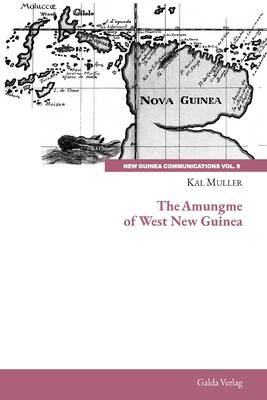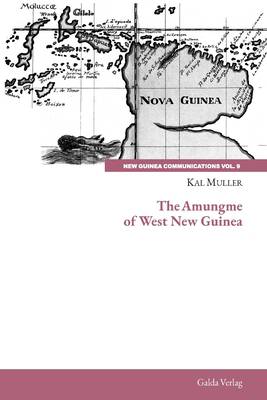
- Afhalen na 1 uur in een winkel met voorraad
- Gratis thuislevering in België vanaf € 30
- Ruim aanbod met 7 miljoen producten
- Afhalen na 1 uur in een winkel met voorraad
- Gratis thuislevering in België vanaf € 30
- Ruim aanbod met 7 miljoen producten
Zoeken
€ 48,45
+ 96 punten
Omschrijving
THE BOOK Aside from the Dani of the Baliem Valley, the Amungme are the best-known highlands tribe in West New Guinea. This is largely due to some of their lands having been taken by the mining company Freeport Indonesia for the development of their mining complex, first around the Ertsberg, then the Grasberg. This second ore body holds the world's largest gold deposit and the third largest concentration of copper. The Amungme, live to the south of the steep central mountains, while their linguistic brothers, the Damal, spread just to the north of this range. During the early years of the Freeport mine operations, the company paid little attention to the Amungme. Their lands were used with scant compensation as the company paid its taxes to the central government, with no obligation to start any social programs for the Amungme. The various chapters cover the essential aspects of the Amungme culture, including their origins, their distinctive language, the kinship structure, social organization, the importance of cowry shells, and females in exchanges, leadership, and the various ways of subsisting: hunting, farming, and gathering. The results of the contacts with the outside world begin with the section on Christianity and the pre-contact mystical concept of 'h'ai', and early paradise that can be attained without first expiring. The effects of the large-scale mining operations are described from the early history of Freeport Indonesia and the effects of the discovery of the huge ore body in Grasberg (Grass Mountain). The concluding section describes the current improvements in the treatment of the Amungme by Freeport, including education, health programs, and job training. THE SERIES The aim is to provide a conduit for the publication of studies on the Island of New Guinea, with its two established political divisions, but will also include other associated patterns of islands. It will enable contributions from new knowledge workers-with their dissertations-
Specificaties
Betrokkenen
- Auteur(s):
- Uitgeverij:
Inhoud
- Aantal bladzijden:
- 224
- Taal:
- Engels
- Reeks:
Eigenschappen
- Productcode (EAN):
- 9783962032258
- Verschijningsdatum:
- 22/03/2023
- Uitvoering:
- Paperback
- Formaat:
- Trade paperback (VS)
- Afmetingen:
- 156 mm x 234 mm
- Gewicht:
- 317 g

Alleen bij Standaard Boekhandel
+ 96 punten op je klantenkaart van Standaard Boekhandel
Beoordelingen
We publiceren alleen reviews die voldoen aan de voorwaarden voor reviews. Bekijk onze voorwaarden voor reviews.











